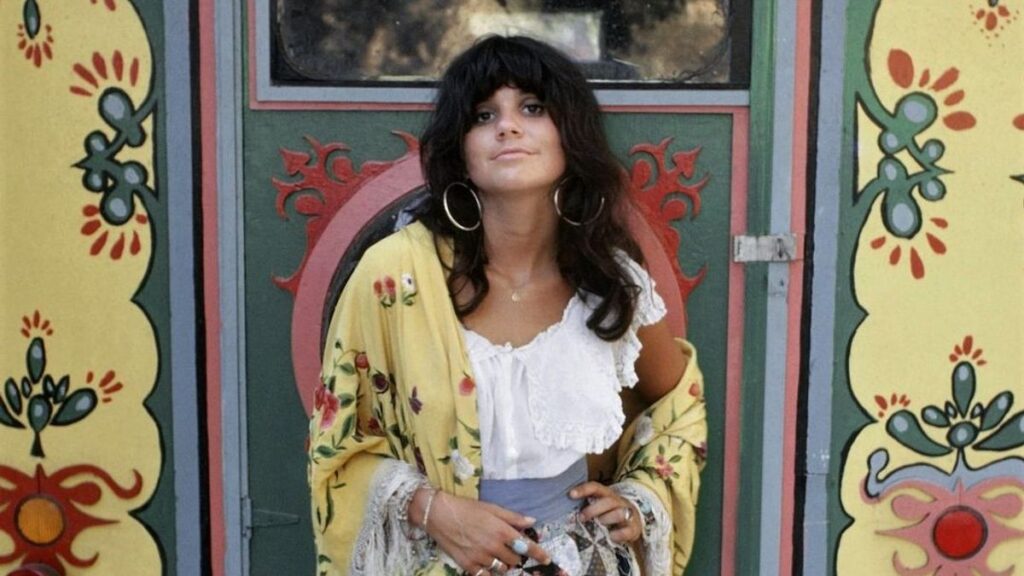
“La Charreada” is a burst of mariachi pride dressed in satin and silver—a song that rides in like a procession, reminding you that heritage isn’t a memory… it’s a living heartbeat.
When Linda Ronstadt sings “La Charreada”, you can feel her doing more than performing a traditional number—she’s stepping into a family photograph and letting it move. The track sits at the center of her landmark mariachi album Canciones de Mi Padre (released November 24, 1987), a record produced by Peter Asher and the legendary mariachi architect Rubén Fuentes, and performed with Mariachi Vargas de Tecalitlán. The album’s chart “arrival” was modest by pop standards—No. 42 on the Billboard 200—yet its cultural footprint became anything but modest, earning Ronstadt a GRAMMY at the 31st GRAMMY Awards for Best Mexican-American Performance.
That contrast—quiet chart math, immense emotional consequence—is exactly the kind of story “La Charreada” tells with its very first flourish.
The title points to a very specific world: the charreada, Mexico’s revered rodeo tradition, equal parts sport, ceremony, and national identity. Even in the way it moves—proud, forward, trumpet-lit—you hear that it’s not merely “about” an event; it behaves like one. The song itself is credited to composer Felipe Bermejo, with documented early recordings dating back to the mid-20th century. In other words, Ronstadt wasn’t choosing a novelty or a tourist postcard. She was choosing repertoire with roots, repertoire that already carried the dust of arenas, the shine of tradition, and the communal joy of people gathering to watch skill turned into art.
And she chose it for an album whose very title—Canciones de Mi Padre—tells you where her heart was pointed: toward family, toward memory, toward the songs that lived in the house long before the world began calling her a star. The GRAMMY’s own retrospective frames the project as Ronstadt returning to the soundtrack of her childhood, honoring the Mexican music that shaped her ear and her sense of melody. And the way she sings “La Charreada” makes that intention audible. There’s no irony, no “pop star trying something exotic.” There is only commitment—clear diction, heartfelt emphasis, and a reverence that feels like she’s singing with the people who taught her these sounds, even if they’re not in the room.
Musically, “La Charreada” is a lesson in why mariachi endures: violins that don’t merely decorate but narrate, trumpets that announce and bless, and that grounded rhythmic engine—vihuela and guitarrón—keeping everything upright and marching forward with dignity. Knowing that Rubén Fuentes served not only as co-producer but as arranger/conductor on the album helps explain the track’s authority: the performance doesn’t “approximate” the tradition; it stands inside it.
Yet the deepest meaning of “La Charreada” in Ronstadt’s hands isn’t technical—it’s emotional. This is the sound of identity spoken aloud. Plenty of singers interpret love songs convincingly; fewer can interpret belonging with this kind of glow. When she leans into the proud lift of the melody, you hear an artist refusing to let her roots be treated as a footnote. She is saying, in effect: this also made me. Not as a detour from her career, but as one of its most honest centers.
It’s also why the song’s joy feels so hard-won. By 1987, Ronstadt had already proved herself across rock, pop, country, and standards—she didn’t need a new “angle.” So when “La Charreada” rings out, it carries the special weight of a choice made freely: not ambition, but devotion. Not a reinvention, but a return—proud enough to ride in with the trumpets, tender enough to leave you quietly grateful when the last note settles.